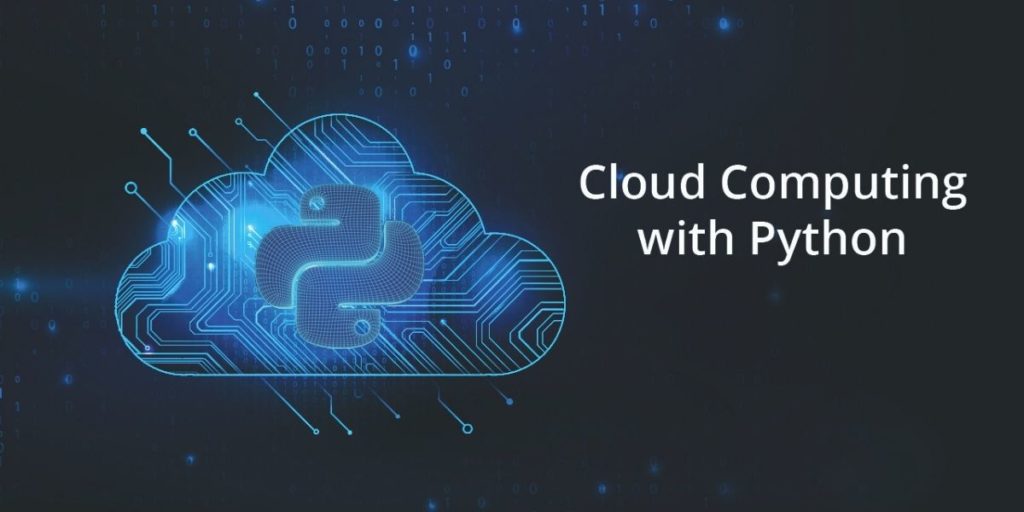In recent years, cloud computing has revolutionized how businesses operate by offering flexible, scalable, and cost-effective solutions. Among the many programming languages available for cloud development, Python stands out as a top choice due to its versatility, simplicity, and robust ecosystem. Python’s unique attributes make it an ideal language for cloud-based applications, enabling businesses to streamline operations and enhance efficiency.
1. Easy Learning Curve and Productivity
Python is renowned for its simple syntax, which makes it easier for developers to learn and use, regardless of their experience. Its readability and straightforward nature allow developers to write and maintain code more efficiently. This simplicity translates into faster development cycles, making it perfect for cloud computing projects where time is critical. Companies that hire Python developers benefit from quicker project turnarounds, leading to faster time-to-market for their cloud-based solutions.
2. Extensive Libraries and Frameworks
One of Python’s biggest strengths lies in its vast collection of libraries and frameworks tailored for cloud computing. Frameworks like Django, Flask, and Tornado simplify the development of cloud applications by providing built-in solutions for handling common tasks such as database management, authentication, and routing. In addition, Python libraries like Boto3 allow seamless integration with major cloud platforms such as AWS, making it easier for businesses to develop and scale cloud-based systems.
Partnering with a reputable Python development company ensures that you can leverage these libraries and frameworks effectively. A professional team can guide you in choosing the right tools for your project and provide tailored python development services that align with your cloud needs.
3. Strong Support for Data Processing and Machine Learning
In cloud computing, handling large datasets and performing data analytics are common tasks. Python excels in these areas thanks to its powerful data processing and machine learning libraries, such as Pandas, NumPy, and TensorFlow. By using Python for cloud computing, businesses can efficiently analyze data in real-time, enabling better decision-making and optimizing cloud resource management.
For organizations looking to integrate machine learning into their cloud applications, hiring Python developers skilled in data science can be a game changer. Python’s flexibility ensures seamless implementation of AI-driven solutions on the cloud, helping companies stay competitive.
4. Cross-Platform Compatibility
Cloud computing relies on cross-platform compatibility to ensure applications run smoothly on different operating systems. Python’s versatility allows developers to build applications that can be easily deployed on any cloud platform, be it AWS, Google Cloud, or Microsoft Azure. This flexibility allows businesses to scale their operations effortlessly and switch between cloud providers when necessary.
A reliable python development company can help you build cloud applications that are platform-agnostic, ensuring your solution is adaptable and scalable for future growth.
5. Automation and DevOps Integration
Python is widely used in automation and DevOps, making it an essential language for cloud infrastructure management. With Python, developers can automate repetitive tasks, such as deploying updates, monitoring systems, and managing cloud resources. Popular DevOps tools like Ansible and SaltStack are built on Python, further solidifying its role in the cloud computing ecosystem.
By choosing professional python development services, businesses can automate their cloud infrastructure efficiently, reducing the risk of errors and improving operational efficiency.
Conclusion
Python’s simplicity, extensive libraries, and strong integration capabilities make it a top choice for cloud computing projects. Whether you’re a startup or a large enterprise, leveraging Python for your cloud infrastructure can boost productivity, streamline operations, and ensure scalability. By partnering with a skilled Python development company, you can unlock the full potential of cloud computing while staying competitive in today’s fast-paced digital landscape.
Hire Python developers today and take advantage of customized python development services to power your cloud initiatives.
FAQ
1. Why is Python a good choice for cloud computing?
Python is an excellent choice for cloud computing because of its simplicity, extensive libraries, cross-platform compatibility, and strong support for automation and data processing. Its flexibility allows developers to build scalable and efficient cloud-based applications with ease.
2. What cloud platforms support Python?
Python is supported by all major cloud platforms, including Amazon Web Services (AWS), Google Cloud Platform (GCP), Microsoft Azure, and IBM Cloud. Python’s extensive libraries make it easy to integrate with these platforms for building and managing cloud applications.
3. How can hiring Python developers benefit cloud projects?
Hiring Python developers can accelerate project timelines, improve code quality, and ensure seamless integration with cloud services. Experienced Python developers understand how to use Python’s libraries, frameworks, and tools to create optimized and scalable cloud solutions.
4. What Python libraries are commonly used for cloud computing?
Popular Python libraries for cloud computing include Boto3 (for AWS integration), Flask and Django (for web app development), and Celery (for task queues). These libraries help developers handle cloud tasks such as resource management, web application deployment, and scaling cloud infrastructure.
5. Can Python handle large-scale data processing in cloud applications?
Yes, Python excels at large-scale data processing, especially with the use of libraries like Pandas, NumPy, and TensorFlow. These tools make Python a great choice for businesses that need to process large datasets or run machine learning algorithms in the cloud.




